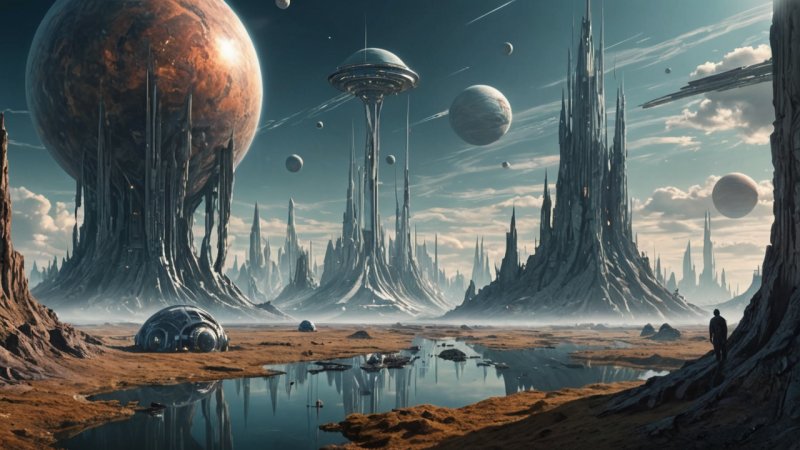Introduction
Science fiction has long been a genre that explores the realms of possibility beyond our current understanding. One of the most intriguing concepts it delves into is that of immortality. In this article, we will explore how various science fiction works approach the idea of living forever. You will learn about key themes, notable books, and authors who have tackled this subject. By the end, you will have a deeper appreciation for the ways in which immortality is portrayed in literature, as well as the philosophical questions it raises.
Step 1: Understand the Concept of Immortality
Immortality, in the context of science fiction, can take various forms. It may refer to biological immortality, where the aging process is halted, or to technological immortality, where consciousness is uploaded into a digital format. Understanding these concepts will help you better appreciate the different narratives surrounding immortality.
Types of Immortality
- Biological Immortality: Characters may discover ways to stop aging or heal from any injury indefinitely.
- Technological Immortality: This often involves uploading one's consciousness into a computer or robotic body.
- Rebirth or Resurrection: Characters may die and come back to life through various means, such as cloning or supernatural powers.
Step 2: Explore Key Themes in Immortality Literature
Various themes emerge when authors address the concept of immortality. Recognizing these themes can enhance your understanding of the motivations behind the characters and plotlines.
Common Themes
- The Burden of Immortality: Many stories explore the psychological toll that immortality takes on individuals, including loneliness and existential dread.
- Ethical Implications: Authors often examine the moral dilemmas that arise from the pursuit of immortality, such as the value of life and the dangers of playing God.
- The Impact on Society: Immortality can change societal structures, including relationships, family dynamics, and population control.
Step 3: Read Notable Works of Science Fiction
Diving into specific science fiction works that address immortality will provide you with a broader perspective on the theme. Here are some key titles to consider:
Must-Read Books
- “The Immortal” by Jorge Luis Borges: A short story that questions the nature of existence and the desire for eternal life.
- “Altered Carbon” by Richard K. Morgan: A cyberpunk novel that explores the implications of transferring consciousness into different bodies.
- “The First Immortal” by James L. Halperin: A story that imagines a future where medical technology allows people to live indefinitely.
- “Tuck Everlasting” by Natalie Babbitt: A children's classic that presents the moral dilemmas of eternal life through the story of a family that cannot die.
Step 4: Analyze Author Perspectives
Understanding the perspectives of authors who write about immortality can provide insight into the societal and philosophical contexts behind their narratives. Many authors draw from their personal experiences, cultural backgrounds, or historical events.
Notable Authors
- Isaac Asimov: Explored the future of humanity and technology in his works, often considering the implications of immortality.
- Octavia Butler: Addressed themes of survival and the human condition, often linking immortality with race and power dynamics.
- Philip K. Dick: Frequently questioned reality and identity, focusing on the nature of consciousness and its permanence.
Step 5: Discuss Philosophical Questions
Finally, consider the broader philosophical questions that arise from the concept of immortality. Engaging with these questions can deepen your understanding and appreciation for the literature.
Philosophical Questions
- What does it mean to live a meaningful life? Does immortality devalue the finite nature of existence?
- Can relationships endure through eternity? How do human connections change when one party is immortal?
- Is eternal life a blessing or a curse? What are the psychological ramifications of living forever?
Conclusion
In this article, we have explored the multifaceted concept of immortality in science fiction literature. By understanding the types of immortality, key themes, notable works, author perspectives, and philosophical questions, you can engage more deeply with the genre. Immortality serves not only as a fascinating narrative device but also as a lens through which to examine the human experience. As you continue your literary journey, consider how these themes resonate with your own views on life, death, and what it means to truly live.






